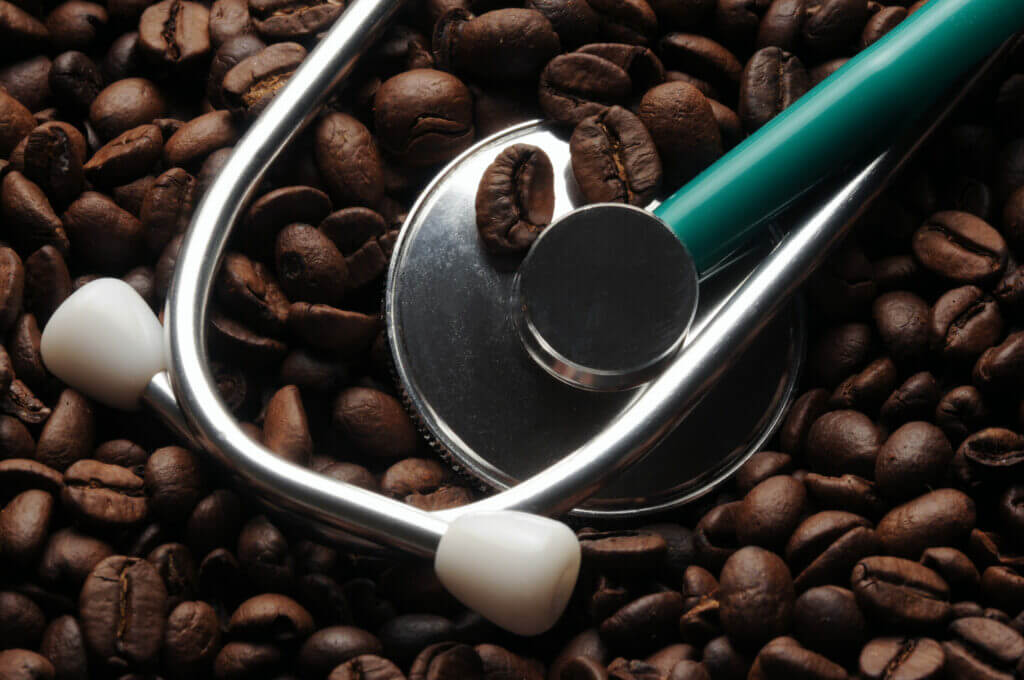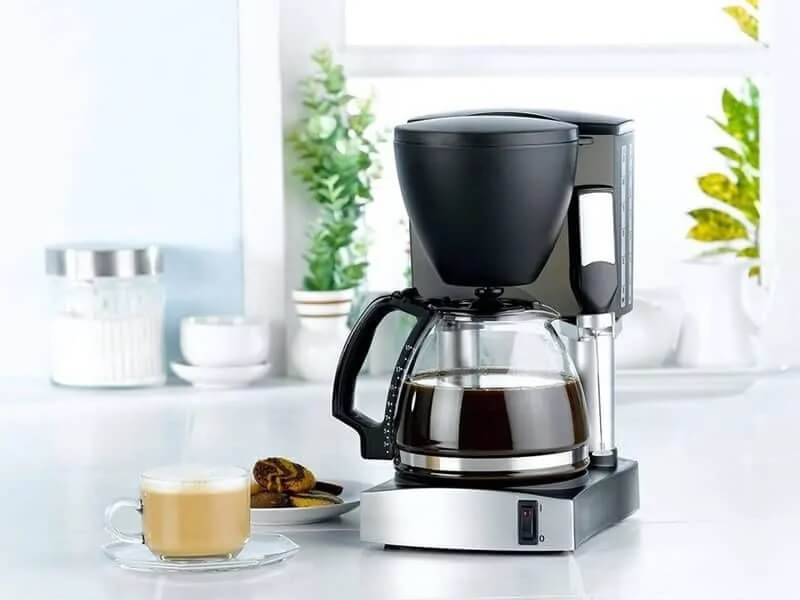
The Healthiest way to brew coffee is linked to many studies that promote many significant benefits which includes:
– weight loss,
– lower blood pressure,
– reduced risk for diabetes
– decreased risk of cardiovascular disease.
A recent study found that filtered coffee may be better than brewing boiling water through coffee grounds for health. The study included more than 500,000 coffee drinkers (ages 20 to 79) and were tracked for about 20 years.
Coffee drinkers less than 60 yrs old who drank less than 400 ml of coffee per day or the equivalent of one to four cups of coffee, had lower rates of heart disease or premature death.
Among them, there was an incrementally lower rate of death with filtered coffee. Since this was a test study it may not prove that filtered coffee is healthier than unfiltered coffee, but researchers concluded by reasoning that unfiltered coffee contains a higher amount of diterpenes, a chemical that may raise cholesterol.
A recent Harvard study believes that a natural chemical found in coffee called chlorogenic acid(CGA) is a strong antioxidant which may control blood pressure, sugar metabolism and may have healing or protective capabilities against cancer, and heart disease.
Studies found that roasted coffee beans processed above 204.6 degrees Celsius for 10 to 20 minutes, decrease CGA from 50% to almost 100%. There are some new roasting trials using lower temperatures for less time to save as much CGA as possible.

Below are some answers to some questions from coffee lovers about coffee and how it affects your health.
What’s the safest way to drink coffee?
Coffee in general is a healthy beverage if less than 400ml or less than 4 cups is consumed daily. Based on findings from a study in Sweden conducted by professor Dag Thelle, shows that drinking filtered coffee is the healthiest way to prepare and drink the brew.
The observations from the study show that unfiltered coffee contains higher amounts of homocysteine which belongs to a group of phytochemicals called diterpenes, and could raise blood cholesterol levels.
How do you make healthy coffee at home?
the healthiest cup of coffee made at home uses
– Using Single-origin beans
– Light roasted coffee
– Not using boiling water to brew coffee
– Using Filter for brewing if possible
– Black coffee is best, or use alternative coffee creamers (see below )
– Drink less than 4 cups of coffee per day, or less than 400 mg per day
What can I use instead of coffee creamer?

We’re beginning to understand the benefits of drinking coffee, but the creamers coffee lovers use to complement each cup of Joe may have long-term damaging effects which may not sustain or maintain the positive coffee benefits.
Many coffee drinkers add Milk, or Cream to sweeten the taste and texture of the coffee, which masks the bitterness from roasted coffee, making it thicker and, smooths out the taste. The dairy creamer proteins generally smooths out the coffee’s bitterness caused by tannin.
Today’s marketing brands advertise their creamers as healthy and pure, containing sugar-free and fat-free content, but this doesn’t always mean a healthy product. In addition to oils and thickeners, popular grocery store creamers can contain various chemicals and artificial sweeteners.
There are healthier alternatives than the current traditional milk or creamer for your coffee at your grocery store. There are plenty of coffee alternatives that are organic, healthy, fat-free, and chemical-free.
Is pour-over coffee healthier?

Studies and research determined that filtered brewed coffee is healthier because it contains less cafestol, which is a cholesterol-raising chemical abundant in coffee prepared with normal methods. The pour-over brewing process is less acidic but the trade-off is that it’- weaker than standard brewed coffee.
We can see that filtered coffee removes unwanted chemicals in coffee analogous to cigarettes with a filter removing tar and nicotine. It makes sense.
Does French press coffee increase LDL?

A recent article from Harvard Health Publishing, wrote that without the filter pressed coffee from a French press may allow coffee oils which contain the diterpenes substance, could pass through into your cup of coffee.
There are some positive views regarding diterpenes for providing extra flavor to brewed coffee. The negative views believe diterpenes increase the bad cholesterol level which is never a good thing.
Five cups or more of French press coffee a day may increase LDL cholesterol levels by about 7 mg/fl and triglyceride levels by about 11 mg/fl. Not everyone is the same and these increases may be more or less based on each individual.
Is boiling coffee harmful?
You Should Never Boil Coffee. Traditional recipes almost never call for actually boiling the coffee. This is because boiling the coffee grounds will release diterpenes chemicals cafestol and Kahweol compounds found in the oils released by boiling coffee.
Many coffee lovers believe that these diterpenes are flavor compounds that most likely will result in bitter over-extraction. Research shows that diterpenes can increase triglyceride and LDL cholesterol levels if you drink 4 to 5 or more cups of unfiltered coffee a day
How do you remove cafestol from a French press?
Based on a paper published in 2018 by the National Library of Medicine, the characteristics of paper filters and low cafestol content from filter coffee brews were explained.
The study acknowledges that a paper filter will reduce diterpenes but the results showed the porosity of the paper filter and the size of the ground roasted coffee makes a significant difference resulting in lower cafestol contents
How do I reduce Acrylamide from coffee?
Recent research discovered that when coffee beans are roasted, it forms acrylamide. This substance was discovered in April 2002
Acrylamide is a substance that is present in foods that were prepared using high temperatures and studies show that in large amounts it can cause cancer. We’re talking about large amounts here.
Acrylamide forms in combination of glucose or fructose with an amino acid called asparagine, through cooking process, at high heat. Foods like French fries, potato chips, and toasted bread, usually contain some acrylamide. Yet the thing that we’re interested and contains acrylamide is coffee.
At this time acrylamide toxicity is inconclusive, and research shows that acrylamide in low amounts is harmless. Acrylamide generally forms in coffee during the coffee bean roasting process.
Here are some recommendations to reduce the amount of Acrylamide:
1) Use Dark Roasted Coffee – lower acrylamide than instant or other type of coffee
2) Reduce consumption to less than 4 cups per day
3) Use low fat, alternative creamers, or fat-free milk – reduces acrylamide
4) Reduce the amount of sugar – Sugar and amino acids during heating produces acrylamide
What coffee has benefits for heart patients?

Caffeinated coffee is preferable for heart patients.
Drinking coffee—less than 4 cups a day—is linked with a lower risk of heart disease and abnormal heart rhythms. It’s also associated with living longer, according to research presented at the American College of Cardiology’s 71st Annual Scientific Session.
The study was true for both people with and without cardiovascular disease. Researchers said the analyses—the largest to look at coffee’s potential role in heart disease and death—provide reassurance that coffee doesn’t cause worsening heart disease and may actually provide heart benefits.(Source)
The Takeaway
Coffee is a great beverage full of compounds and antioxidants that are good for health, such as:
- Magnesium, potassium, and niacin
- Caffeine, which in small amounts can reduce fatigue and improve alertness and concentration
- High in potent compounds such as chlorogenic acid and polyphenols, which have antioxidant properties that help prevent cell damage.
Overall, coffee provides many benefits to coffee lovers if:
- Coffee consumption is less than 4 cups or less than 400 ml
- Using healthy, organic, alternate coffee creamers
- Using filtered coffee for brewing
- Not boiling brewed coffee
There are some differences between light and dark roast coffee. Light roast coffee beans are processed at a lower temperature for a shorter length of time than dark roast beans.
There are always pros and cons when choosing and it’s based on an individual choice, but it’s important to know that light roasts beans may be higher in healthy antioxidants and polyphenols, but has higher amounts acrylamide.
If you have any comments, please leave them below, I’d love to hear from you. If you’re a coffee lover and a dog lover check these pet supplements.

Many thanks for this valuable and comprehensive post on Healthiest Way To Brew. I really don’t know that there are so many benefits from this. My sister is really trying hard to lose weight. I will definitely send this post to her as well. And you have given step by step instructions to make it. Thank you very much for that too. I will definitely try it. Keep posting like this.
Hello Pasindu, and thank you for your comments. I’m glad you realized that there are significant benefits if you drink less than 4 cups of coffee per day. I wrote an article regarding weight loss benefits from coffee which you can also share with your family.
Michael
I’m glad to see that coffee is indeed healthy in some way, as I do drink a lot of coffee. I see there is always the ongoing debate whether filtered or brewed coffee is best. My friends and family think I am mad, but I find both a little strong and have always preferred instant coffee, with the occasional cup of filtered coffee. Do you know if instant coffee has any of the same health benefits?
Hello Michel, and thank you for your comments. your comments makes sense that there are always pros and cons with coffee, but the benefits significantly outweigh the cons if you drink less than 4 cups per day, or less than 400 ml of coffee. Incredible antioxidants benefits which can prolong a healthy life. I wrote an article on instant coffee which shows that it also has a smaller amount of healthy benefits, but the key is which process they used to produced the instant coffee. The Swiss water process is the best by far. It’s all in my article